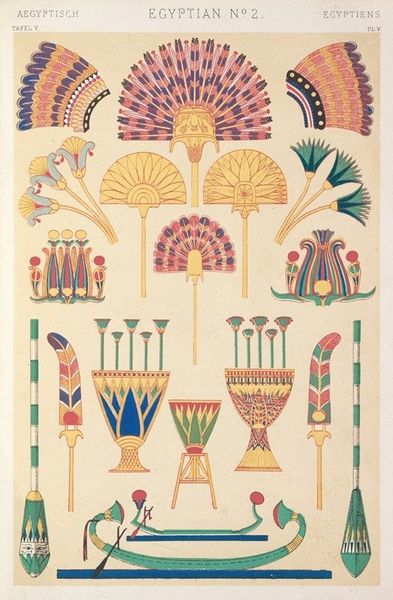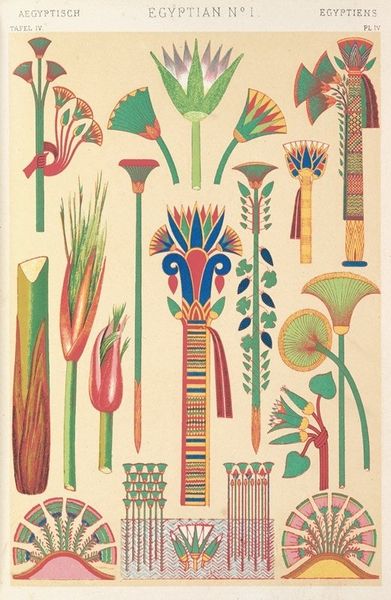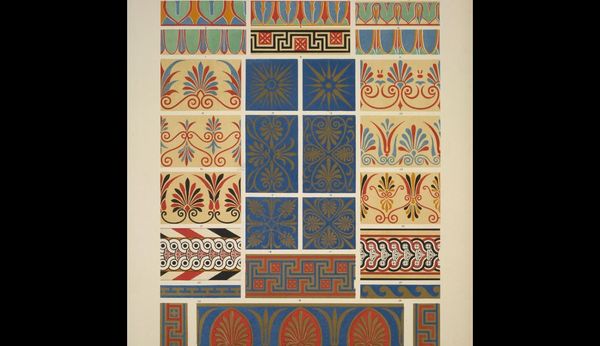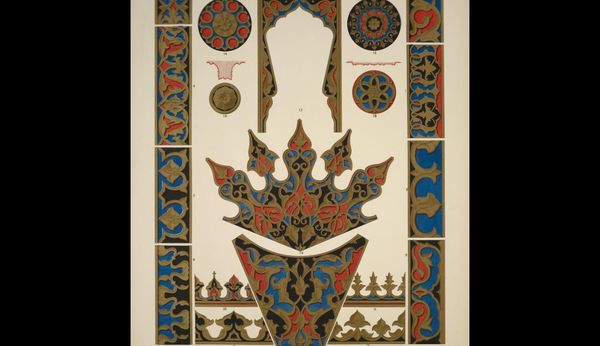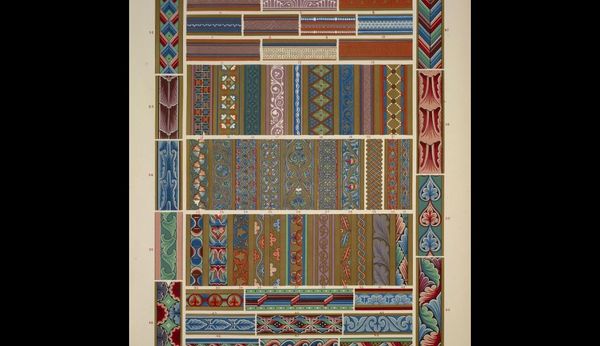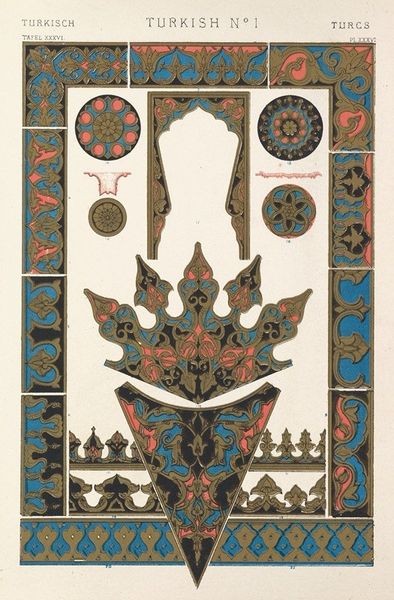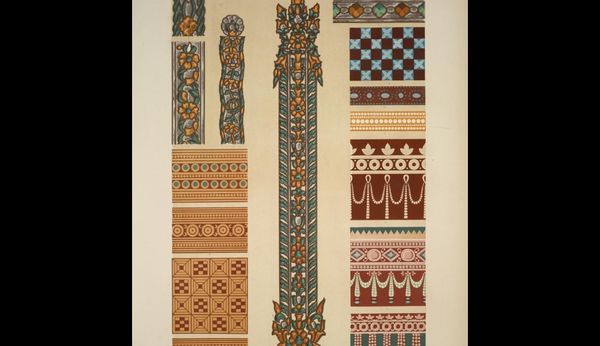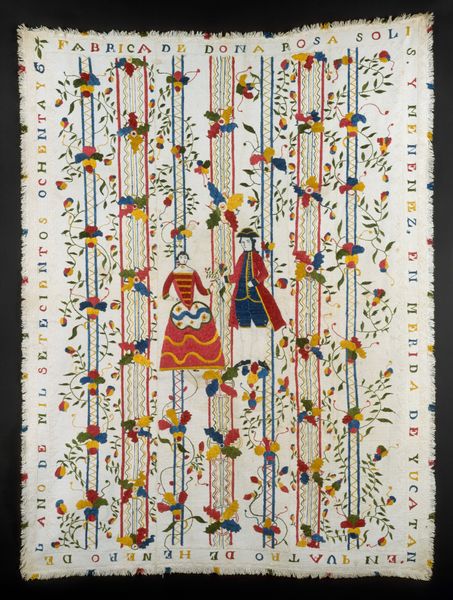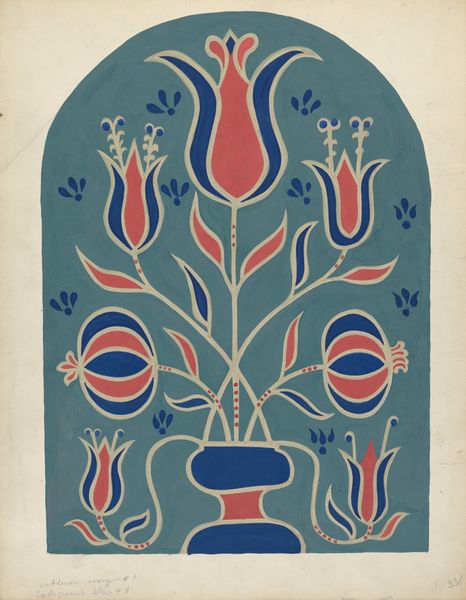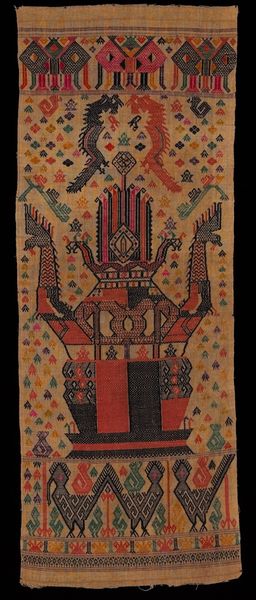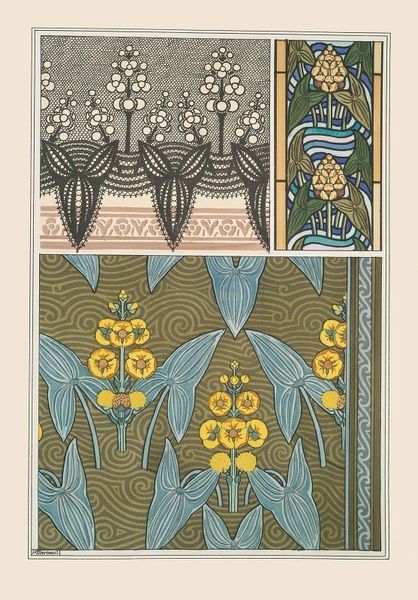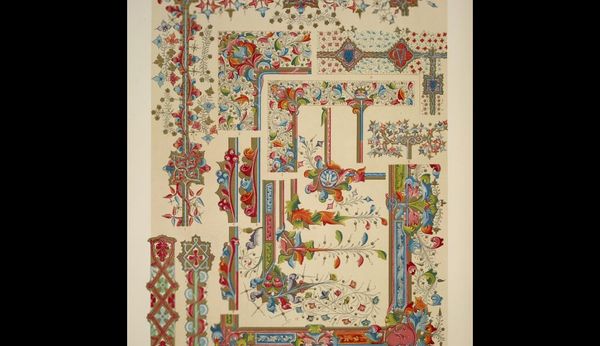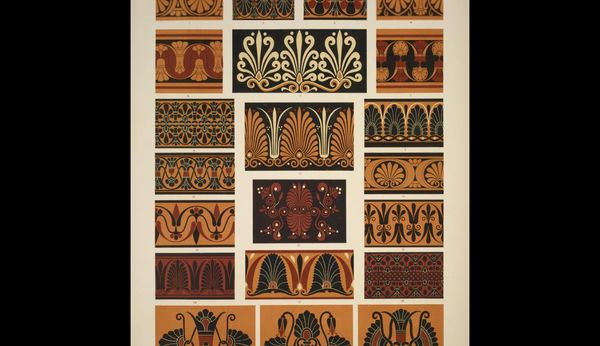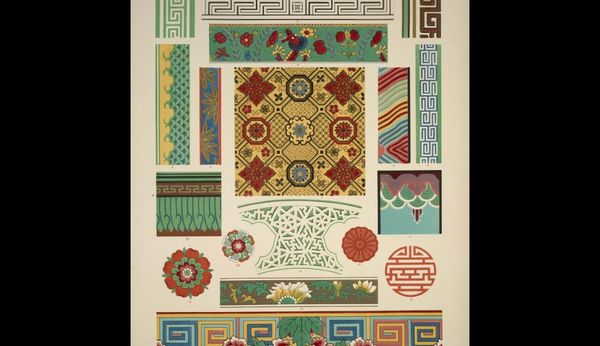
# print
#
ancient-egyptian-art
#
geometric pattern
#
geometric
#
decorative-art
Copyright: Public domain
Owen Jones created ‘Egyptian no. 2’ using chromolithography, a method which allows for the production of vibrant, multi-colored prints. The flat, patterned designs reflect a keen interest in the ornamental vocabulary of ancient Egypt. But it’s important to remember that this wasn't about replicating Egyptian craft traditions. Instead, Jones was applying industrial techniques to capture the essence of historical design, simplifying and stylizing motifs for mass production. The process of chromolithography itself – involving multiple layers of ink applied with precision – mirrors the layered symbolism of Egyptian art, but it also embodies the Victorian era's fascination with categorizing and consuming world cultures. Jones’s work reflects the broader social context of 19th-century industrialization, where the aesthetics of the past were reinterpreted and reproduced for a modern, consumer-driven audience. By understanding the materials and processes behind this print, we can appreciate how ‘Egyptian no. 2’ bridges the gap between fine art, craft, and the burgeoning world of industrial design.
Comments
No comments
Be the first to comment and join the conversation on the ultimate creative platform.
